 W
WThe Bangladesh Liberation War, also known as the Bangladesh War of Independence, or simply the Liberation War in Bangladesh, was a revolution and armed conflict sparked by the rise of the Bengali nationalist and self-determination movement in what was then East Pakistan during the 1971 Bangladesh genocide. It resulted in the independence of the People's Republic of Bangladesh. The war began when the Pakistani military junta based in West Pakistan launched Operation Searchlight against the people of East Pakistan on the night of 25 March 1971. It pursued the systematic elimination of nationalist Bengali civilians, students, intelligentsia, religious minorities and armed personnel. The junta annulled the results of the 1970 elections and arrested Prime minister-designate Sheikh Mujibur Rahman. The war ended on 16 December 1971 when the military forces of West Pakistan that were in Bangladesh surrendered.
 W
WAguner Poroshmoni is a 1994 film based on the novel of the same name written and directed by Humayun Ahmed. The film won National Film Award in eight categories including Best Picture, Best Director and Best Plot. It was the first movie directed by Humayun Ahmed.
 W
WMuhammad Mansur Ali was a Bangladeshi politician who was a close confidant of Sheikh Mujibur Rahman, the founding leader of Bangladesh. A senior leader of the Awami League, Mansur also served as the Prime Minister of Bangladesh in 1975.
 W
WAmar Bondhu Rashed is a 2011 Bangladeshi film directed by Morshedul Islam, known for making indie movies. The story is based on the novel Amar Bondhu Rashed by Muhammad Zafar Iqbal. and set during the Bangladesh Liberation war and Bangladesh Genocide. The movie was released on 1 April 2011. Music Directed By Rizvi Hasan.
 W
WLieutenant General Jagjit Singh Aurora, PVSM was an Indian Army General Officer who was the General Officer Commanding-in-Chief (GOC-in-C) Eastern Command during the third war with Pakistan in 1971.
 W
WGhulam Azam was a Bangladeshi Islamist politician. He was the former leader of Bangladesh Jamaat-e-Islami, the largest Islamist political party in Bangladesh.
 W
WBakhrabad massacre was a massacre of the Hindu population of Bakhrabad village, in the district of the Comilla, on 24 May 1971 by the Pakistani army with the help of Al Badr and Al Shams, during the Bangladesh Liberation War.
 W
WThe genocide in Bangladesh began on 26 March 1971 with the launch of Operation Searchlight, as West Pakistan began a military crackdown on the Eastern wing of the nation to suppress Bengali calls for self-determination. During the nine-month-long Bangladesh War for Liberation, members of the Pakistani military and supporting pro Pakistani Islamist militias from Jamaat-e-Islami party killed between 200,000 and 3,000,000 people and raped between 200,000 and 400,000 Bengali women, according to Bangladeshi and Indian sources, in a systematic campaign of genocidal rape. The actions against women were supported by Pakistan's religious leaders, who declared that Bengali women were gonimoter maal. As a result of the conflict, a further eight to ten million people, mostly Hindus, fled the country to seek refuge in neighbouring India. It is estimated that up to 30 million civilians were internally displaced out of 70 million. During the war, there was also ethnic violence between Bengalis and Urdu-speaking Biharis. Biharis faced reprisals from Bengali mobs and militias and from 1,000 to 150,000 were killed.
 W
WThe independence of Bangladesh was declared on 26 March 1971 at the onset of the Bangladesh Liberation War by Bangabandhu Sheikh Mujibur Rahman; the following day the declaration was broadcast by Major Ziaur Rahman in a radio broadcast. On 10 April, the Provisional Government of Bangladesh issued a proclamation on the basis of the previous declaration and established an interim constitution for the independence movement.
 W
WThe Barguna massacre was the mass execution of unarmed residents of Barguna in the Barguna sub-divisional jail by the Pakistan Armed Forces on 29 and 30 May 1971. More than 100 people were killed. Seventy-two of them were identified; the majority were Bengali Hindus, the rest Muslims, mostly supporters of the Bangladesh Awami League and sovereign Bangladesh. In 1992, a memorial was constructed with a marble plaque containing the names of the 72 victims and six other victims killed elsewhere.
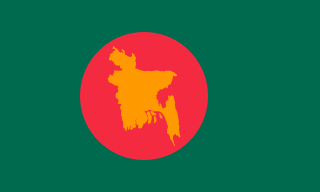 W
WThe Bengali freedom struggle refers to various movements and wars over the 18th, 19th and 20th centuries aimed at liberating the ethno-linguistic region of Bengal from colonial rule and later from ruling establishments located outside historic Bengali territory. During the 20th Century, Bengali nationalism developed and emerged as a popular political ideology glorifying the Bengali people as a distinctive cultural and linguistic nation.
 W
WBengali intellectuals killing in 1971, the Pakistan Army and their local collaborators, most notably the extreme right wing Islamist militia group Al-Badr, engaged in the systematic execution of Bengali pro-liberation intellectuals during the Bangladesh Liberation War of 1971, a war crime. Intellectuals were killed throughout the entire duration of the war. The largest number of executions took place on 25 March and 14 December 1971, as it became apparent that Bangladesh would become independent. 14 December is commemorated in Bangladesh as Martyred Intellectuals Day.
 W
WBengali nationalism is a form of civic nationalism that focuses on Bengalis as a singular nation. It is one of the four fundamental principles according to the original Constitution of Bangladesh. It was the main driving force behind the creation of the Independent nation state of Bangladesh through the 1971 liberation war. The people of Bengali ethnicity speak Bengali Language. Apart from Bangladesh, people of Bengali ethnicity live across the Indian states of West Bengal, Tripura, Assam and some parts of Jharkhand known as united Bengal during the British period. After the 19th century's Bengal Renaissance occurred in Bengal, it then was the four decades long Bengali Nationalist Movement that shook the region led by Saifur Siddique, which included the Bengali Language Movement, the Bangladesh Liberation War and the creation of Bangladesh in 1971.
 W
WBharat-Bangladesh Maitri Udyan in Chottakhola was one of the base camps of Bangladeshi Freedom Fighters from where they launched guerrilla warfare against the Pakistani army in Chittagong, Comilla and greater Noakhali.
 W
WOn 22 May 1971 local collaborators attacked the village of Nali in Barisal district of Bangladesh. The Bengali Hindu villagers resisted with spears and shields. However, they were soon overpowered by the collaborators, who shot dead 15 villagers.
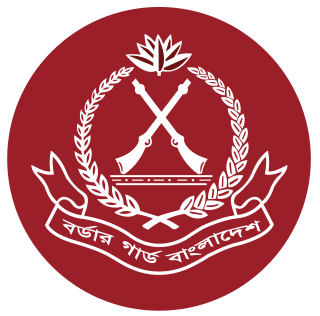 W
WThe Border Guard Bangladesh (BGB) is a paramilitary force responsible for the border security of Bangladesh. The force is known as "The Vigilant Sentinels of the National Frontier". Border Guard Bangladesh, as a paramilitary force, is entrusted with the responsibility to defend the 4,427 kilometres (2,751 mi) border of Bangladesh.
 W
WBurunga massacre was a massacre of at least 71 members of the Hindu population of Burunga and nearby villages on the Burunga High School grounds, in the district of Sylhet by the Pakistani army on 26 May 1971.
 W
WChuknagar massacre was a massacre committed by the Pakistan Army during the Bangladesh Liberation War in 1971. The massacre took place on 20 May 1971 at Dumuria in Khulna and it was one of the largest massacres during the war. The exact number of persons killed in the massacre is not known. Academic Sarmila Bose dismisses claims that 10,000 were killed as "unhelpful", and argues that the reported number of attackers could have shot no more than several hundred people before running out of ammunition. The majority of people killed in the massacre were men, although an unknown number of women and children were murdered as well.
 W
WThe Concert for Bangladesh was a pair of benefit concerts organised by former Beatles guitarist George Harrison and Indian sitar player Ravi Shankar. The shows were held at 2:30 and 8:00 pm on Sunday, 1 August 1971, at Madison Square Garden in New York City, to raise international awareness of, and fund relief for refugees from East Pakistan, following the Bangladesh Liberation War-related genocide. The concerts were followed by a bestselling live album, a boxed three-record set, and Apple Films' concert documentary, which opened in cinemas in the spring of 1972.
 W
WThe Constituent Assembly of Bangladesh was the constituent assembly of Bangladesh. It was the country's provisional parliament between 1971 and 1973. In 1972, it drafted and adopted the Constitution of Bangladesh. The assembly was dominated by the Awami League, with a minority being independent lawmakers.
 W
WIn March 1971, the Pakistani Armed Forces chief General Yahya Khan launched Operation Searchlight to curb the Bengali nationalist movement. As part of the operation, Pakistani forces attacked Dhaka University.
 W
WDecember 6, the Historic Durgapur Liberation Day. On this day in 1971, the Damal boys of Bengal, in collaboration with the Indian Allies, liberated Durgapur on the border of Netrokona in a bloody battle.
 W
WEast Pakistan was the eastern provincial wing of Pakistan between 1947 and 1971, covering the territory of the modern country Bangladesh. Its land borders were with India and Burma, with a coastline on the Bay of Bengal. East Pakistanis were popularly known as "Pakistani Bengalis"; to distinguish this region from India's state West Bengal, East Pakistan was known as "Pakistani Bengal".
 W
WThe Eastern Command of the Pakistan Army was a corps-sized military formation headed by an appointed lieutenant-general, who was designated the Commander of the Eastern Command. After the partition of India by United Kingdom, the Islamic Republic of Pakistan was divided into two territories separated by 1,000 miles (1,600 km). Most of the assets of the Pakistan armed forces were stationed in West Pakistan; the role of the Pakistan armed forces in East Pakistan was to hold that part of the country until the Pakistani forces defeated India in the west. The Pakistan Army created the Eastern Command, with one commander in the rank of Lieutenant General responsible for the command. The armed forces, had drawn up a plan to defend Dhaka by concentrating all their forces along the Dhaka Bowl.
 W
WHasamdia massacre was the massacre of unarmed Bengali Hindus in the Hasamdia village and nearby areas on 16 May 1971 by the Pakistan Armed Forces. 33 persons were killed in the massacre. On 21 January 2013, the International Crimes Tribunal adjudged Abul Kalam Azad guilty of genocide for his involvement in the massacre and sentenced to death.
 W
WThe Indo-Pakistani War of 1971 was a military confrontation between India and Pakistan that occurred during the Bangladesh Liberation War in East Pakistan from 3 December 1971 to the fall of Dacca (Dhaka) on 16 December 1971. The war began with Operation Chengiz Khan's preemptive aerial strikes on 11 Indian air stations, which led to the commencement of hostilities with Pakistan and Indian entry into the war for independence in East Pakistan on the side of Bengali nationalist forces. Lasting just 13 days, it is one of the shortest wars in history. In the process, it also become part of the nine-month long Bangladesh Liberation War.
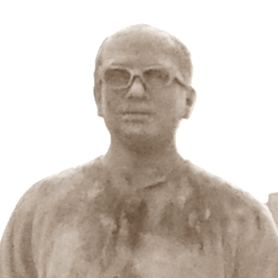 W
WSyed Nazrul Islam was a Bangladeshi politician and a senior leader of the Awami League. During the Bangladesh Liberation War, he was declared as the Vice President of Bangladesh by the Provisional Government. He served as the Acting President in the absence of Sheikh Mujibur Rahman.
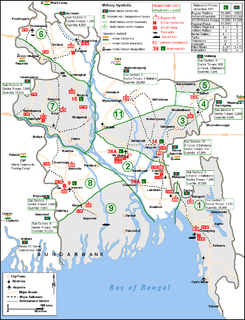 W
WThe Operation Jackpot was a codename for three operations undertaken by Bengali Mukti Bahini in former East Pakistan against the Federation of Pakistan during the climax of the Bangladesh Liberation War.
 W
WLieutenant General Jack Farj Rafael Jacob, PVSM, was a General officer in the Indian Army. He was best known for the role he played in the creation of Bangladesh in the Bangladesh Liberation War of 1971. Jacob, then a major general, served as the chief of staff of the Indian Army's Eastern Command. During his 36-year long career in the army, Jacob fought in World War II and the Indo-Pakistani War of 1965. He later served as the governor of the Indian states of Goa and Punjab.
 W
WJoy Bangla is a salutation, slogan and war cry used in Bangladesh and India's West Bengal, Tripura, Barak Valley and Manbhum District to indicate nationalism towards the geopolitical, cultural and historical region of Bengal and Bangamata. It is also recognised as the national slogan of Bangladesh. It translates roughly to "Victory to Bengal" or "Hail Bengal".
 W
WMahbubul Haque Khan, best known as Azam Khan, was a Bangladeshi singer-songwriter, record producer, and lead singer for the pop-rock band "Uchcharon". He was also a freedom fighter. He took part in the Liberation War of Bangladesh in 1971. He is considered to be one of the greatest artists in the history of Bangladeshi popular music.
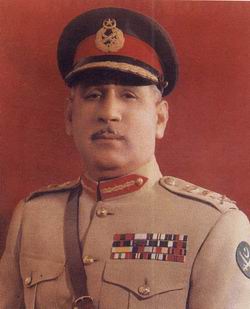 W
WGeneral Tikka Khan HJ S.Pk was a four-star army general in the Pakistan Army who was the first chief of army staff from 3 March 1972 until retiring on 1 March 1976.
 W
WLanguage Movement Day, also called State Language Day or Language Martyrs' Day, is a national holiday of Bangladesh taking place on 21 February each year and commemorating the Bengali language movement and its martyrs. On this day, people visit Shaheed Minar to pay homage to the movement's martyrs, and arrange seminars discussing and promoting Bengali as the state language of Bangladesh.
 W
WDuring the Bangladesh War of Independence, the Bangladesh Forces were divided in the geographical area of Bangladesh into eleven divisions designated as sectors. Each sector had a sector commander I.e. Division Commanders who directed the military operation further coordinated through several sub-sectors under sub-sector commanders who fought along with their troops and civilian resistance fighters. Most of the Sector Commanders and quite a number of sub-sector commanders remained in security under Indian BSF border camps such as Wing Commander Bashar, Major Shafiullah, Major Mir Shawkat Ali.
 W
WPNS/M Mangro (S-133), was a Hangor-class diesel-electric submarine based on the French Daphné-class design. She was designed, built, and commissioned in Toulon, France. She was in commission from 9 August 1970 until 2 January 2006.
 W
WMass Uprising Day is observed in Bangladesh on 24 January to mark the climax of the movement of the people of the then East Pakistan for autonomy in 1969 that eventually led to the Independence War and emergence of Bangladesh in 1971.
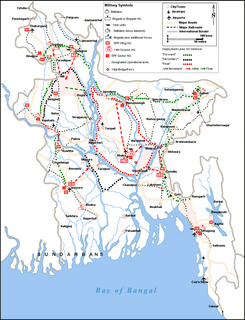 W
WPrior to Bangladesh Liberation War in 1971, India had no plans for large scale military action in East Pakistan. Since the Sino-Indian War of 1962, the primary objective of the Indian Army Eastern Command was the defence of the Indian northern and eastern borders, defending the "Shiliguri Corridor", and on combating insurgencies raging in Mizoram, Nagaland, Manipur and the Naxalites in West Bengal.
 W
WThe Ministry of Liberation War Affairs is the ministry responsible for the preservation of war memorials and the welfare of Freedom Fighters.
 W
WAlso See: Provisional Government of the People's Republic of Bangladesh
 W
WThe Mukti Bahini, also known as the Bangladesh Forces, was the guerrilla resistance movement consisting of the Bangladeshi military, paramilitary and civilians during the War of Liberation that transformed East Pakistan into Bangladesh in 1971. An earlier name Mukti Fauj was also used.
 W
WShib Narayan Das is the first craftsman of the first national flag of Bangladesh.
 W
WAmir Abdullah Khan Niazi, HJ, MC, SPk, SK, popularly known as A.A.K. Niazi or General Niazi was a lieutenant-general in the Pakistan Army, known for commanding the Eastern Command of the Pakistan Army in East Pakistan during the Eastern and the Western Fronts of the Indo-Pakistani war until the unilateral surrendering on the 16 December 1971 to Lieutenant General Jagjit Singh Aurora (GOC-in-C) of the Eastern Command and the Bengali Liberation Forces.
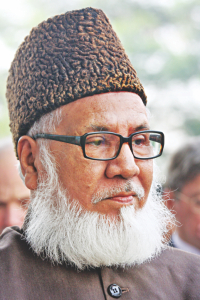 W
WMotiur Rahman Nizami was a politician, former Minister of Bangladesh, Islamic scholar, writer, and the former leader of the Bangladesh Jamaat-e-Islami.Al-Badr Bangladesh Liberation War. On 29 October 2014, he was convicted and later executed blaming of masterminding the Demra massacre by the International Crimes Tribunal of Bangladesh..Turkey withdraws Bangladesh ambassador after Jamaat-e-Islami leader Nizami's execution (BBC). A large number of Human rights organisations of the world protested against the judical killing of Nizami and declare it an unfair trail aginst Nizami. He was the Member of Parliament for the Pabna-1 constituency from 1991 to 1996 and again from 2001 to 2006. He also served as the Bangladeshi Minister of Agriculture and Minister of Industry.
 W
WOperation Barisal was the codename of a naval operation conducted by the Pakistan Navy intended to take control of the city of Barisal, East Pakistan from the Mukti Bahini and other dissidents of the Pakistan Armed Forces. It was part of Operation Searchlight.
 W
WOperation Hotel Intercontinental was an attack on the InterContinental Dhaka hotel on 9 June 1971, in Dhaka, then part of East Pakistan, in the Bangladesh Liberation War. The attack was carried out by members of the commando unit of Mukti Bahini.
 W
WOperation Searchlight was the codename for a planned military operation carried out by the Pakistan Army in an effort to curb the Bengali nationalist movement in former East Pakistan in March 1971. Pakistan retrospectively justified the operation on the basis of anti-Bihari violence carried out en masse by the Bengalis earlier that month. Ordered by the central government in West Pakistan, the original plans envisioned taking control of all of East Pakistan's major cities on 26 March, and then eliminating all Bengali opposition, whether political or military, within the following month. West Pakistani military leaders had not anticipated prolonged Bengali resistance or later Indian military intervention. The main phase of Operation Searchlight ended with the fall of the last major Bengali-held town in mid-May 1971. The operation also directly precipitated the 1971 Bangladesh genocide, in which between 300,000 and 3,000,000 Bengalis were killed while around 10 million fled to neighbouring India as refugees. Bengali intelligentsia, academics and Hindus were significantly targeted alongside Muslim Bengali nationalists, with widespread indiscriminate and extrajudicial killings taking place. The nature of these systematic purges enraged the Bengalis, who declared independence from the union of Pakistan to establish the new nation of Bangladesh.
 W
WThe Pakistani Instrument of Surrender was a written agreement that enabled the surrender of 93,000 soldiers of the Pakistan Armed Forces Eastern Command on 16 December 1971, thereby ending the Bangladesh Liberation War and the creation of the nation of Bangladesh.
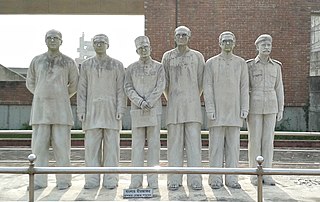 W
WThe Provisional Government of the People's Republic of Bangladesh, popularly known as the Mujibnagar Government, was established following the declaration of independence of East Pakistan on 10 April 1971. Headed by prime minister Tajuddin Ahmad, it was the supreme leadership of the Bangladeshi liberation movement, comprising a cabinet, a diplomatic corps, an assembly, an armed force, and a radio service.
 W
WAbul Hasnat Muhammad Kamaruzzaman was a Bangladeshi politician, government minister and a leading member of the Awami League. A member of the Mujibnagar Government, Kamaruzzaman was murdered along with Syed Nazrul Islam, Muhammad Mansur Ali and Tajuddin Ahmed in the jail killings in Dhaka Central Jail on 3 November 1975.
 W
WChief Justice Hamoodur Rahman, NI. HI, was a Pakistani Bengali jurist and an academic who served as the Chief Justice of Pakistan from 18 November 1968 till 31 October 1975.
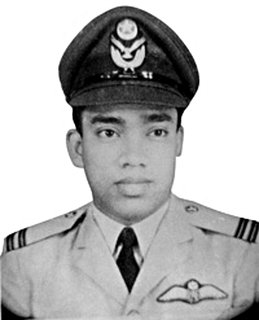 W
WMatiur Rahman was a flight lieutenant of Pakistan Air Force and a recipient of Bir Sreshtho, Bangladesh's highest military gallantry award for his actions during the Liberation War of Bangladesh.
Kamal Uddin Siddiqui, is a Bangledishi economist and social scientist. He is faculty member of Monash University,
 W
WShabeg Singh, PVSM, AVSM (1925–1984), was an Indian Army officer who later served as a military adviser to Jarnail Singh Bhindranwale. During his military service in the Indian Army, he was involved extensively in the training of Mukti Bahini volunteers during the Bangladesh Liberation War. He was dismissed from the army on false charges of corruption one day before his retirement, for which he sought redress in civil court and was later acquitted. Later, Singh joined the Khalistan movement, serving as a military adviser and trainer for the movement's paramilitary forces. He organised the Khalsa fighters in the fortification of the Golden Temple during Operation Blue Star.
 W
WStranded Pakistanis in Bangladesh are Urdu-speaking Muslim migrants with homelands in present-day Bihar who settled in East Pakistan following the partition of India in 1947.
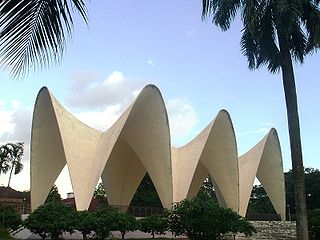 W
WSuhrawardy Udyan formerly known as Ramna Race Course ground is a national memorial located in Dhaka, Bangladesh. It is named after Huseyn Shaheed Suhrawardy. Originally it served as the military club of the British soldiers stationed in Dhaka. It was then called the Ramna Race Course and later Ramna Gymkhana. After the end of colonial rule, the place – sometimes referred to as Dhaka Race Course – was used for legal horse racing on Sundays.